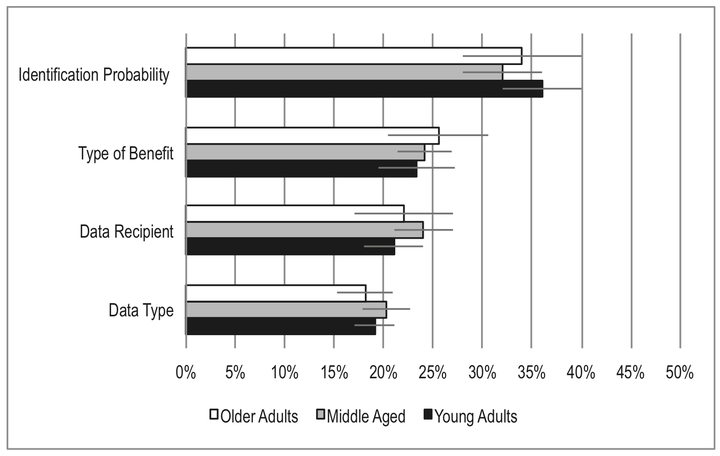
Abstract
In times of the ongoing digitalization in private and public areas, online privacy is a specific good that should be handled with care. This is relevant for many social and economic contexts, but is most sensible in the health and medical sector. On the one hand the sharing of medical data increases public knowledge and enables the development of digital (health) services and innovations, on the other hand the protection of individual privacy is of para- mount importance. From a technical perspective, there are approaches to protect privacy, such as differential privacy or privacy-aware recommendation systems. Yet, little is known about the users’ willingness to share data, especially against the offering of individual benefits and the perceived risk of identification, but also the impact of data type and data recipients. Taking an age-perspective, focus groups were run first followed by a conjoint-decision study (n = 173), in which we empirically investigated individual decisions to share medical data, exploring the importance and utility of four attributes related to sharing of personal health data. Results show both, age-sensitive as well as age-insensitive findings. Independently disliked of their age, users disagreed to sharing data regarding mental illnesses, also disliked high identification risks and commercial use of the data, but would be willing to share data scientific purposes. The findings might contribute to understanding users’ privacy perceptions and to develop information and communication strategies.